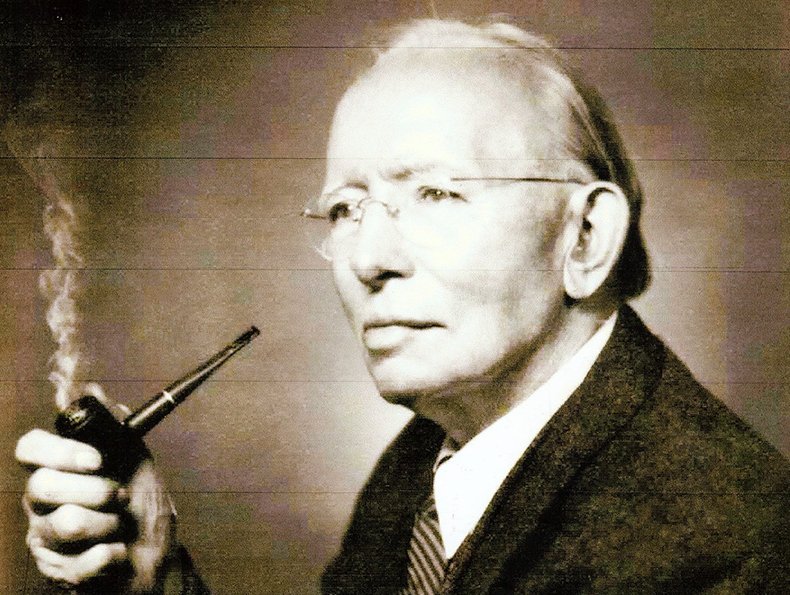Alvin Saunders Johnson gained national and international fame as an economist, educator, humanitarian, social activist, writer, and editor. Born in 1874, he grew up on a farm near Homer, Nebraska where he learned the importance of hard work and having goals in life.
His immigrant parents were strong believers in racial and social equality and his mother was a strong feminist. Johnson often credited the values instilled in him at home for his success.
After receiving a Ph.D. at Columbia University, Johnson began a long career in teaching at several major universities, including Columbia, Nebraska, Cornell and others.
In 1917, Johnson became editor of the New Republic, a prominent liberal periodical. He remained editor until 1923, when he assumed the directorship of the New School for Social Research in New York City. It was there, during the 1930s, that he created the University in Exile, a refuge for Jewish scholars from Nazi Germany.
Johnson demonstrated his concern for members of minority groups discriminated against or persecuted at home and abroad by drafting the Ives-Quinn Law for the New York Legislature. This statute was one of the earliest laws to protect the civil rights of Jews and African Americans.
In 1945, Johnson retired from his post at the New School, but continued to write books of fiction and wrote his autobiography, Pioneer’s Progress, which was published in 1952. He received many awards during his lifetime for his scholarship, his courageous defense of academic freedom, and his support for refugee scholars. He was given honorary doctorates from Brandeis University and the University of Nebraska and from foreign universities, including Brussels, Algiers, and Heidelberg. He died on June 7, 1971, in Upper Nyack, New York.


